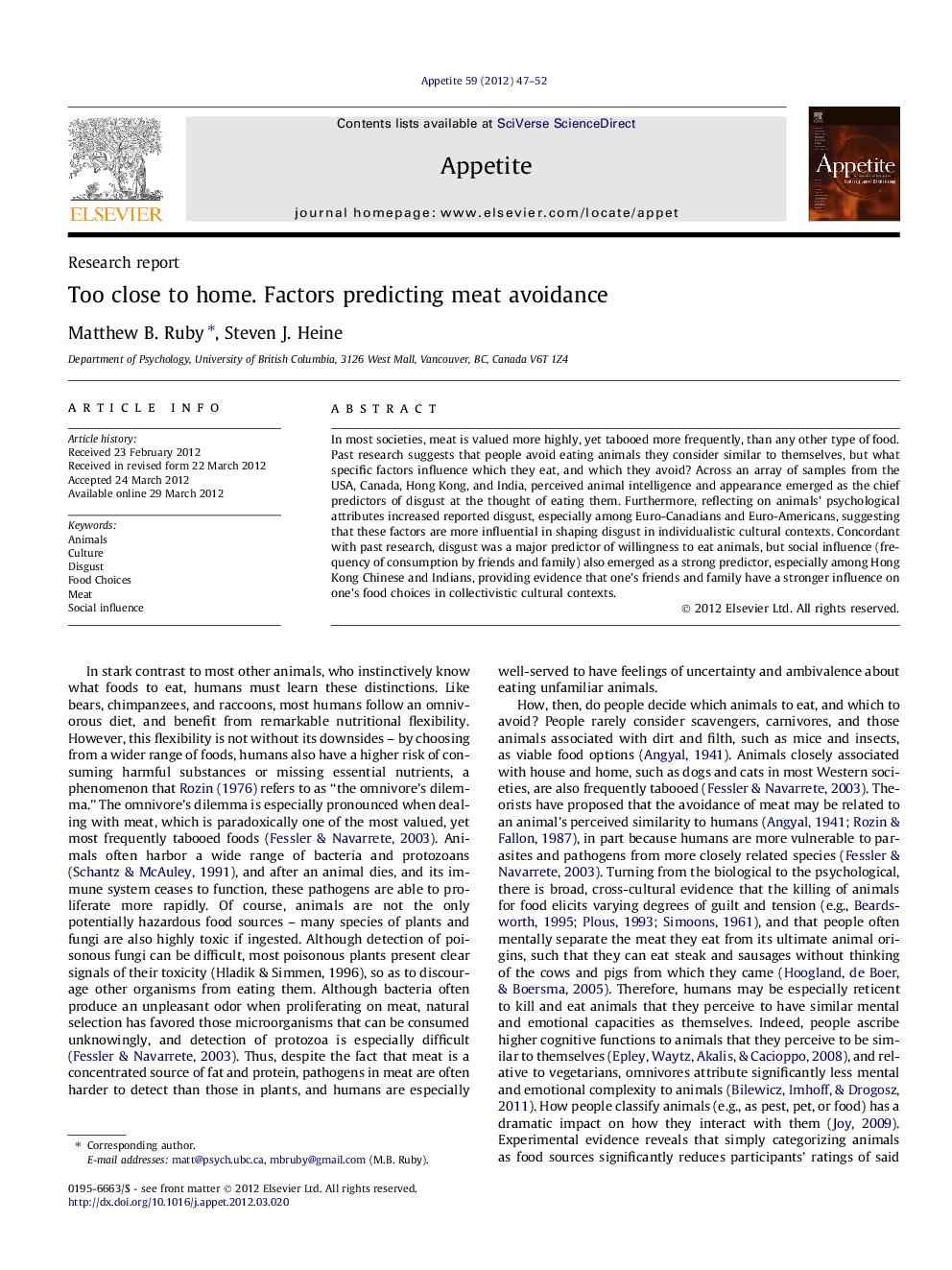| کد مقاله | کد نشریه | سال انتشار | مقاله انگلیسی | نسخه تمام متن |
|---|---|---|---|---|
| 940138 | 924883 | 2012 | 6 صفحه PDF | دانلود رایگان |

In most societies, meat is valued more highly, yet tabooed more frequently, than any other type of food. Past research suggests that people avoid eating animals they consider similar to themselves, but what specific factors influence which they eat, and which they avoid? Across an array of samples from the USA, Canada, Hong Kong, and India, perceived animal intelligence and appearance emerged as the chief predictors of disgust at the thought of eating them. Furthermore, reflecting on animals’ psychological attributes increased reported disgust, especially among Euro-Canadians and Euro-Americans, suggesting that these factors are more influential in shaping disgust in individualistic cultural contexts. Concordant with past research, disgust was a major predictor of willingness to eat animals, but social influence (frequency of consumption by friends and family) also emerged as a strong predictor, especially among Hong Kong Chinese and Indians, providing evidence that one’s friends and family have a stronger influence on one’s food choices in collectivistic cultural contexts.
► We examine what factors shape attitudes toward eating animals across four cultures.
► Perceived animal intelligence and appearance are chief predictors of disgust.
► Reflecting on animals’ psychological attributes increases disgust.
► Disgust and social influence predict willingness to eat.
► Social influence is a stronger predictor in collectivist cultural contexts.
Journal: Appetite - Volume 59, Issue 1, August 2012, Pages 47–52